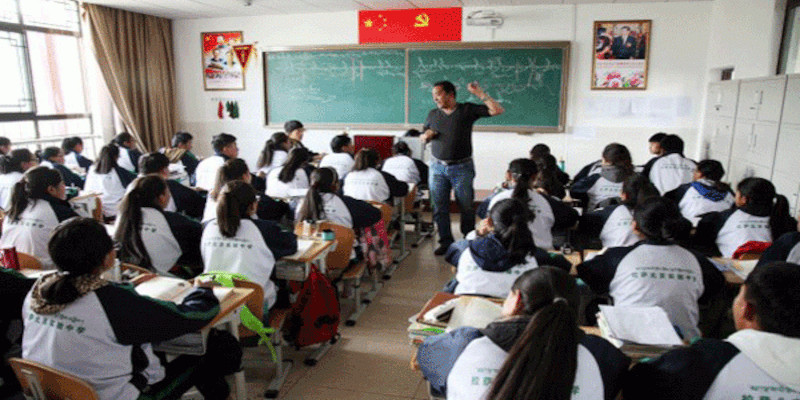11th May: In one province of Tibet, Chinese authorities declare that Tibetan children’s parents can no longer put rosaries, prayer wheels, or any other religious object on the schools, as China is pursuing policies that erode the distinct Tibetan cultural identity.
A Tibetan living in the Sog district of Tibetan Autonomous Region of Nagchu (Naqu) said RFA’s service was forbidden to pray mantras or other prayers while visiting schools for children in the Tibetan county in Sog (Chinese, Suo).
According to an RFA source, the new rules, that started appearing on school blackboards in April, inform students and their families that “schools are places where socialist scholars can cultivate and produce and should not be used to observe rituals and traditions.”
“The limitations have now been enforced in all junior and middle schools in the county of Sog and students were told to ensure that the guidelines were known to their parents or custodians,” an anonymous source of RFA said.
“These new restrictions on the actions of students’ parents are a complete infringement of their rights and an insult to Tibetan religion and culture,” the source said. Chinese Communist Party members and government employees, including retired staff, are still prohibited from making open displays of religious activity, “but these new restrictions on the behavior of students’ parents are a complete violation of their rights and an insult to Tibetan religion and culture.”
“As China prepares to commemorate the 100th anniversary of the Chinese Communist Party’s (CCP) founding on July 23, authorities are stepping up efforts to spread the Party’s ideology in Tibetan counties, cities, monasteries, and schools,” he said. “These places are all being told to report back to ensure their loyalty to the CCP”
Threatened language rights
Already restricted in Tibetan schools with preferences for Mandarin teaching, Tibetan children are losing their fluency in their own language, say sources.
In recent years, Tibetan attempts to claim the national identity, informal language courses in the monasteries, towns, and towns considered illegal associations, and teachers subject to detention and arrest, have become the main concern of Tibetan language rights.
In order to limit political activities of Tibetan people and peaceful expression of cultural and religious identity and subject Tibetans to persecution, torture, detention, and extrajudicial killing, the Chinese authorities retain close control of this area.
Picture Courtesy: nepal24hours.com







Leave a Reply